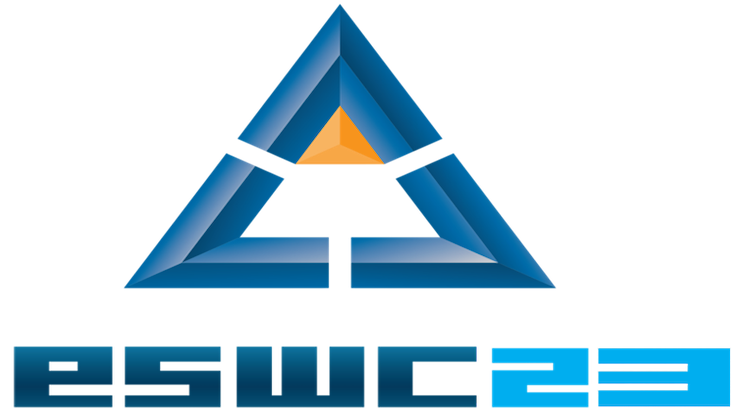Papers accepted at the ESWC 2023
24 April 2023, by Cedric Möller

Photo: https://2023.eswc-conferences.org
We are happy to announce that the following papers were accepted at the ESWC 2023:
Research track:
"GETT-QA: Graph Embedding based T2T Transformer for Knowledge Graph Question Answering" by Debayan Banerjee, Pranav Ajit Nair, Ricardo Usbeck, and Chris Biemann
Abstract: In this work, we present an end-to-end Knowledge Graph Question Answering (KGQA) system named GETT-QA. GETT-QA uses T5, a popular text-to-text pre-trained language model. The model takes a question in natural language as input and produces a simpler form of the intended SPARQL query. In the simpler form, the model does not directly produce entity and relation IDs. Instead, it produces corresponding entity and relation labels. The labels are grounded to KG entity and relation IDs in a subsequent step. To further improve the results, we instruct the model to produce a truncated version of the KG embedding for each entity. The truncated KG embedding enables a finer search for disambiguation purposes. We find that T5 is able to learn the truncated KG embeddings without any change of loss function, improving KGQA performance. As a result, we report strong results for LC-QuAD 2.0 and SimpleQuestions-Wikidata datasets on end-to-end KGQA over Wikidata.
SEMMES Workshop:
"WikiEvents - A Novel Resource for NLP Downstream Tasks" by Lars Michaelis, Junbo Huang, and Ricardo Usbeck
Abstract: Efficient Natural Language Processing (NLP) models require large amounts of training data. Manually creating training data is time-consuming. We present WikiEvents, an automatically curated dataset based on Wikipedia’s Current Events portal. WikiEvents is a novel knowledge graph that aims to provide data for various event-centric NLP tasks, such as event-related location extraction and entity linking. Therefore, WikiEvents includes event summaries with linked entities and locations. WikiEvents also provides spatial and temporal information about extracted events for various use case analyses. We leverage the NLP Interchange Format (NIF) ontology and an event-specific novel ontology - CoyPu. We evaluate the suitability regarding NLP tasks by (1) training three BERT models on event-related location extraction with data queried from WikiEvents and (2) comparing WikiEvents to the existing entity linking dataset AIDA-YAGO2. Qualitative, event-related research capabilities are explored by querying data from WikiEvents for multiple use cases and visualizing it.
